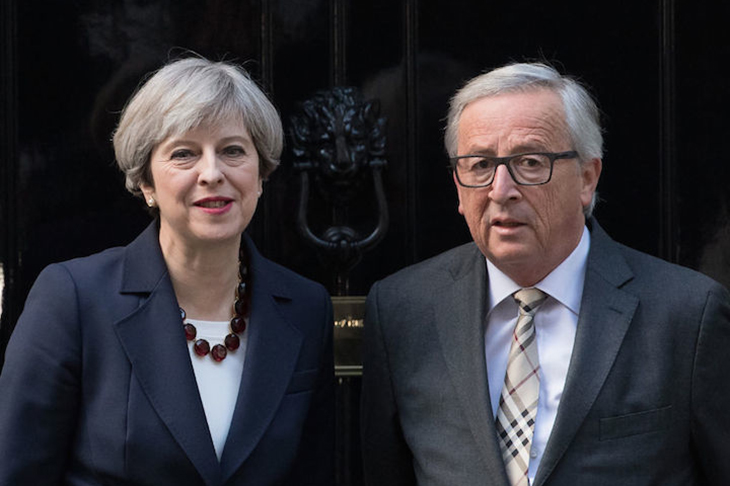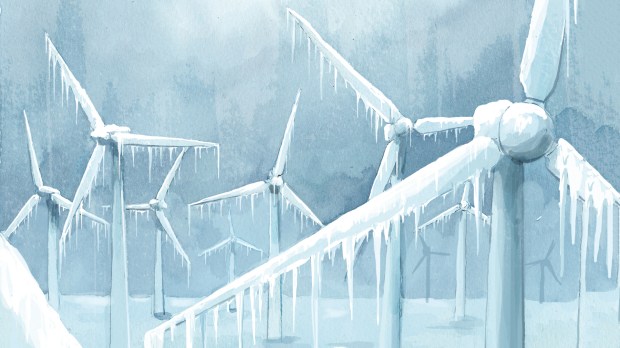If elections were decided on voter enthusiasm rather than on plain numbers, Marine Le Pen would win this weekend’s battle for the French presidency. But it seems likely that Emmanuel Macron’s more numerous but less passionate supporters will prevail — more for dislike of her than admiration of him. It is when he ends up in the Elysée that his problems will start. Can a president without a party command support in the National Assembly? Who will he appoint to his government? How quickly might it unravel? Domestic woes will likely consume Macron, with foreign policy a luxury he might not be able to afford.
Reports of his hostility to Brexit are exaggerated: his adviser Jean Pisani-Ferry wrote a paper highlighting the folly of being beastly to the British. This is the logical position — a free-trade deal with the UK is in line with French national and economic interest. But if the EU were governed by logic, it would not be in the mess it is today and the British public would probably not have voted to leave.
The election of Macron is likely to further strengthen the position of Angela Merkel, who has made it her political mission to keep the EU intact. She is not always very good at this. Had she agreed to David Cameron’s suggestion to renegotiate a new deal with Britain, with emergency brake powers over immigration, then he would have been able to say that the EU had listened, and was reforming. Merkel’s intransigence was perhaps the biggest single factor in the failure of Britain’s last attempt to negotiate with the EU. It remains a problem now.
Even now, the German political class cannot quite bring itself to believe that Brexit is happening, and suspects that it can be averted if only British voters can be won round — hence Angela Merkel’s willingness to put the principle of holding the EU together above the pragmatic interests of her own exporters. Sheer economic self-interest suggests she ought to be doing her damnedest to pull off a trade deal with Britain, not refusing to talk about it until we agree to pay a fantasy bill of £50 billion, or even €100 billion.
Theresa May has protested that the leaked account of last week’s Downing Street dinner in a German newspaper is not a faithful representation of what she feels was a constructive event. But the leaked version rings true. The stubbornness, the grandstanding and the ‘can’t do’ attitude of EU officials is a reminder why so many Britons decided last June to leave. That Jean-Claude Juncker even felt the need to insult the food in Downing Street betrays his view of the European project as the defence of a high civilisation of which frozen-pea Britain has never fully been part.
According to the leak, Juncker at one point held aloft the 2,000-page trade agreement between the EU and Canada, his point being just how long and complex trade agreements are. It was more of a visual representation of the EU’s failings. The US-Australia deal was agreed in a matter of months. But the EU finds trade discussions very difficult, which is why it has failed to agree one with any of its major partners. When trade is discussed, emotions run high, paranoia runs deep and vetoes are wielded. While the EU trudges on with its attempts to do deals with China and Japan, nimble Swiss negotiators have managed both. Soon Britain will have the freedom to do the same.
The Prime Minister is right to play down the briefings and the insults that have flown from Brussels after the Brexit discussions so far. As she knows, the hardball approach that Juncker and Merkel are taking to these negotiations is a sign of understandable panic. Britain is a nation with unemployment at a 40-year low and populism dying on its feet — few of Mrs May’s counterparts will be negotiating from a position of such economic and political stability. Many are struggling against Eurosceptic populists and feel the need to paint Britain as a country in collapse.
As the talks progress, there will be more such provocations and comically unrealistic demands. It will take some time for the EU to pull itself together, and it might not happen until after Germany’s elections. The question that still hangs unanswered is whether a mutual deal will ever be on offer. Theresa May’s biggest problem is that the EU believes she will sign any deal, no matter how bad, just as David Cameron did. When she says that ‘no deal is better than a bad deal’, she is not taken seriously.
Rather than being drawn into the briefing wars, she ought to start making preparations to walk away. Publishing a contingency plan would show that the ‘no deal’ scenario is far from disastrous: World Trade Organisation rules ban the EU from inflicting punishing tariffs or quotas on British goods. A tariff of about 4.5 per cent would be an irritant, but easily offset by a fall in sterling. WTO rules have governed Britain’s relations with the United States, our biggest single trading partner. If the EU is in no state to agree a deal now, then it makes perfect sense to walk away and revert to WTO default rules for a while, seeking to strike an agreement with the EU when it is finally able to do so.
It cannot be stressed often enough that we are not leaving Europe — only a cumbersome union of countries with which somehow we will continue to do business. Good relations with our neighbours will outlast our membership of the European Union, and very possibly, given the dissent seen in France and elsewhere, the EU itself.
Got something to add? Join the discussion and comment below.
Get 10 issues for just $10
Subscribe to The Spectator Australia today for the next 10 magazine issues, plus full online access, for just $10.
You might disagree with half of it, but you’ll enjoy reading all of it. Try your first month for free, then just $2 a week for the remainder of your first year.














Comments
Don't miss out
Join the conversation with other Spectator Australia readers. Subscribe to leave a comment.
SUBSCRIBEAlready a subscriber? Log in